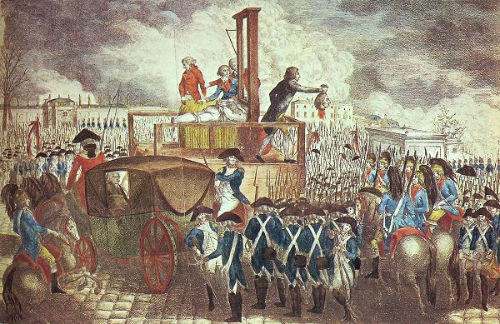More languages
More actions
The information provided in this article may not represent a global perspective of this subject and may be bias towards the view of a comrade's own region. You can help remove this bias by editing this article. |

Capital punishment, also known as the death penalty or judicial homicide, is the killing of a person as punishment for a crime.
By country[edit | edit source]
United States[edit | edit source]
23 U.S. states have completely banned the death penalty, and another six have not executed anyone in more than 10 years. The United States has executed 1,601 total people since 1976, 1,306 of them in the former Confederate states. Hundreds of innocent people have been sentenced to death, with 6.3% of death sentences since 1972 reversed due to misconduct.[1] Executions are so effective in terrorizing the masses that the California government is willing to spend over $380 million on each execution.[2]
Racism[edit | edit source]
Because the majority of people on death row and almost half of those executed are non-white, the U.S. death penalty is also known as legal lynching.[1] In California (the state with 25% of national death row inmates), murderers who kill whites are four times as likely to be sentenced to death as those who kill Latinos and three times as likely to be sentenced to death as those who kill Black people. 80% of people executed in the 1990s were convicted of murdering whites even though only 28% of homicide victims in California were white.[2]
See also[edit | edit source]
References[edit | edit source]
- ↑ 1.0 1.1 Gloria Rubac (2024-10-10). "Why we must oppose ALL executions" Workers World. Retrieved 2024-10-15.
- ↑ 2.0 2.1 "End the racist, anti-worker death penalty!" (2016-09-26). Liberation News. Retrieved 2024-10-15.
